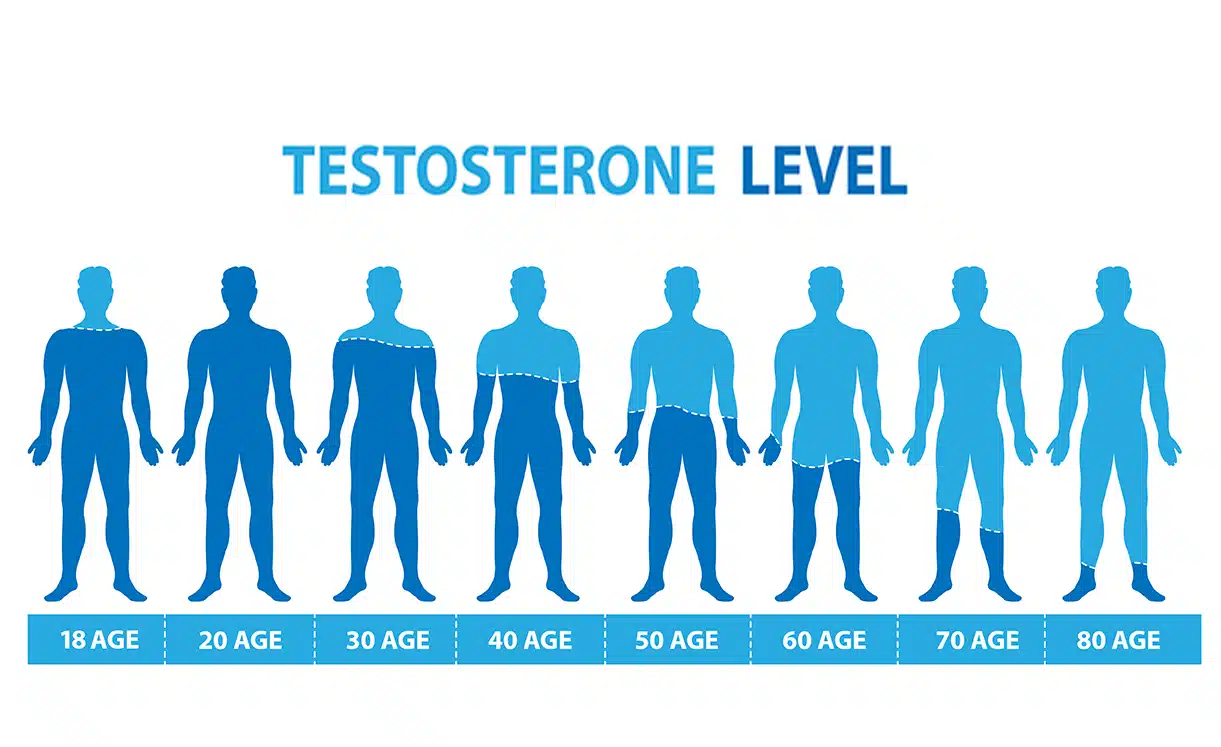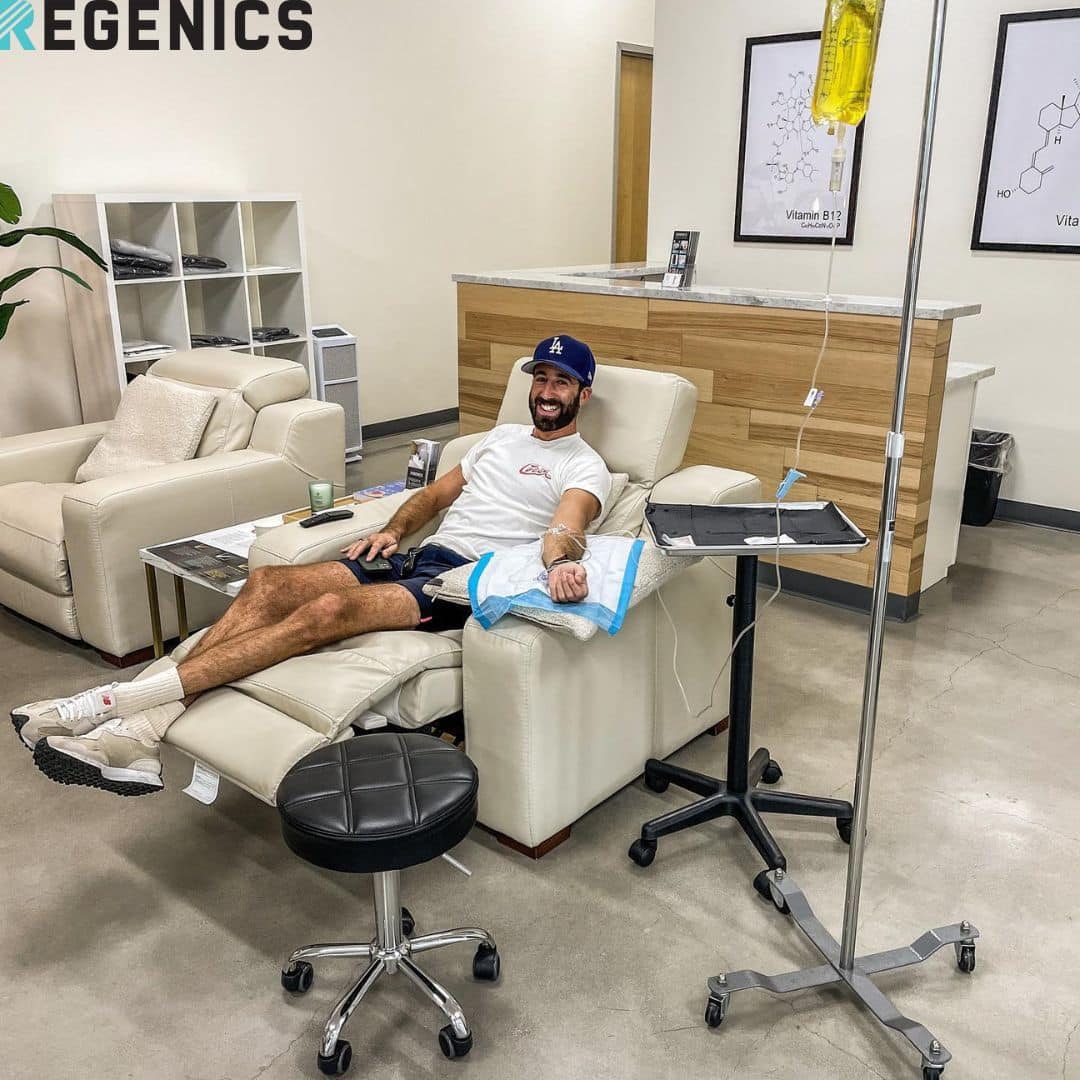
Testosterone Therapy: A Comprehensive Guide to Benefits, Risks, and Vitality
By admin_sergey
|Testosterone Therapy: A Comprehensive Guide to Benefits, Risks, and Vitality
Testosterone Replacement Therapy (TRT) has garnered much attention as a potential way to restore youthfulness, vitality, and improve overall health in men experiencing low testosterone levels. With benefits ranging from increased energy to enhanced muscle mass, TRT has become a popular option for those seeking to counteract the effects of aging. However, like any medical treatment, TRT comes with both advantages and risks. Understanding how TRT works, its potential outcomes, and the importance of consulting a healthcare professional can help you make informed decisions about whether it is the right choice for you.
The Promise of TRT: Can It Restore Youth and Vitality?
One of the most enticing claims about TRT is that it can help promote youth and vitality. Many men experiencing a decline in testosterone, often as they age, report improvements in energy, mood, and physical strength after starting therapy. In fact, testosterone therapy is believed to reduce the visible signs of aging, boost mental clarity, increase muscle mass, and improve bone density. For those struggling with symptoms like fatigue, loss of libido, and diminished cognitive function, TRT can seem like a miracle solution.

Several studies suggest that TRT may help increase muscle mass, reduce body fat, and improve overall physical performance. It’s also associated with a lower risk of osteoporosis, thanks to its positive impact on bone density. Moreover, some evidence points to improved memory and mental sharpness with TRT, as well as increased sexual desire and performance.
For those experiencing age-related declines in testosterone, TRT offers a tangible solution to regain some of the physical and emotional vigor they once had. That said, while the benefits are promising, it is essential to balance this optimism with a clear understanding of the risks.
How TRT Benefits Older Men
As men age, testosterone levels naturally decrease, often leading to symptoms such as reduced muscle mass, fatigue, and a diminished sex drive. For older men, TRT can be a way to address these issues and enhance their quality of life. Studies of TRT have shown that it can improve muscle strength, increase bone density, and even reduce the risk of cardiovascular diseases. For many men, these benefits alone make TRT worth considering.
In addition to older men, women experiencing low libido may also benefit from testosterone therapy. While testosterone is primarily known as a male hormone, it plays a role in female sexual health too. Some women have found that TRT helps improve desire and arousal, adding another dimension to its potential applications.
Testosterone therapy comes in many forms, including gels, patches, injections, and implants. This variety allows for customization based on the patient’s preferences and needs, making TRT a flexible and accessible treatment option.
The Risks: Weighing the Downsides of TRT
While the benefits of TRT are significant, it is important to be aware of potential risks. One of the primary concerns is the possibility of an increased risk of cardiovascular issues, such as heart attacks and strokes. The FDA has issued warnings regarding these risks, particularly for men over the age of 65. There is also a concern that TRT may cause too much production of red blood cells, potentially leading to blood clots.
Prostate health is another area of concern. Some studies suggest that testosterone therapy may increase the risk of prostate cancer or exacerbate existing prostate problems. Men with a history of prostate issues should discuss these risks with their doctors before considering TRT.
Despite these concerns, many experts believe that the benefits of TRT often outweigh the risks, especially when therapy is carefully monitored by a healthcare professional. Regular blood tests, prostate screenings, and check-ups are essential for managing any potential side-effects.
TRT and Its Impact on Fertility
One common question among men considering TRT is whether it will affect their ability to father children. While TRT can improve symptoms like low libido, energy, and bone mass, it may also negatively impact fertility. TRT can lower sperm production, and in some cases, it may even lead to infertility.
Fortunately, many men see a reversal in fertility after discontinuing TRT. However, if you are concerned about future fertility, it is crucial to discuss this with your doctor before starting therapy. Some men opt to freeze their sperm prior to beginning TRT as a precautionary measure.
There are also treatments, such as clomiphene citrate or aromatase inhibitors, that may help improve fertility while undergoing TRT. It’s essential to explore all options and understand the potential impact of TRT on your reproductive health.
Natural Ways to Boost Testosterone
While TRT is an effective solution for many, some individuals may prefer to explore natural ways to elevate testosterone levels before committing to therapy. A healthy diet, regular exercise, and adequate sleep can go a long way in supporting testosterone production. Certain foods, such as those rich in vitamins, minerals, and antioxidants, may help promote healthy testosterone levels. Engaging in resistance training, such as weightlifting, is another proven method for increasing testosterone naturally.
Additionally, maintaining a healthy weight and avoiding excessive alcohol consumption can positively influence testosterone levels. Stress management is also crucial, as chronic stress can lead to elevated levels of cortisol, which may inhibit testosterone production.
Before considering TRT, it’s worth trying these natural methods to see if they can alleviate your symptoms. However, if lifestyle changes don’t produce the desired results, TRT can provide a more targeted and effective solution.
The Role of Testosterone in Aging
As men age, testosterone levels gradually decline. This decrease can lead to a variety of age-related symptoms, such as reduced muscle mass, weight gain, and decreased sexual function. Some experts believe that low testosterone levels may contribute to the aging process itself, potentially accelerating physical decline and increasing the risk of age-related diseases.
Interestingly, research shows that testosterone therapy may help combat some of these effects of aging. For instance, TRT has been linked to improved cardiovascular health, including better regulation of blood pressure and cholesterol levels. While there is still some debate about the long-term effects of TRT on heart health, many men experience notable improvements in their overall well-being after starting therapy.
Furthermore, testosterone therapy may improve mental health by alleviating symptoms of depression and anxiety, which are often linked to low testosterone levels. Many men report feeling more confident, motivated, and emotionally stable while undergoing TRT, making it a compelling option for those seeking to improve their quality of life as they age.
Should You Talk to Your Doctor About TRT?
If you’re considering TRT, the first step is to consult with a healthcare professional. Whether you’re a young man experiencing low testosterone or an older individual dealing with age-related symptoms, your doctor can help you assess whether TRT is the right option for you. They will likely perform blood tests to measure your testosterone levels, review your medical history, and discuss potential risks and benefits based on your unique situation.
During this consultation, your doctor may also explore alternative treatments or suggest lifestyle changes that could naturally boost your testosterone levels. If you decide to move forward with TRT, regular monitoring will be essential to ensure that the therapy is effective and to minimize any potential risks.
Conclusion: Is TRT Right for You?
Testosterone Replacement Therapy offers a promising solution for men (and women) struggling with low testosterone levels. From increased energy and improved mood to enhanced physical performance and sexual function, TRT has the potential to significantly improve quality of life. However, it is essential to weigh these benefits against the potential risks, such as cardiovascular issues and impacts on fertility.
If you’re considering TRT, consult with a Regenics healthcare provider to ensure that it’s the right fit for you. With the right medical guidance and careful monitoring, TRT can be a safe and effective way to reclaim your vitality and well-being.